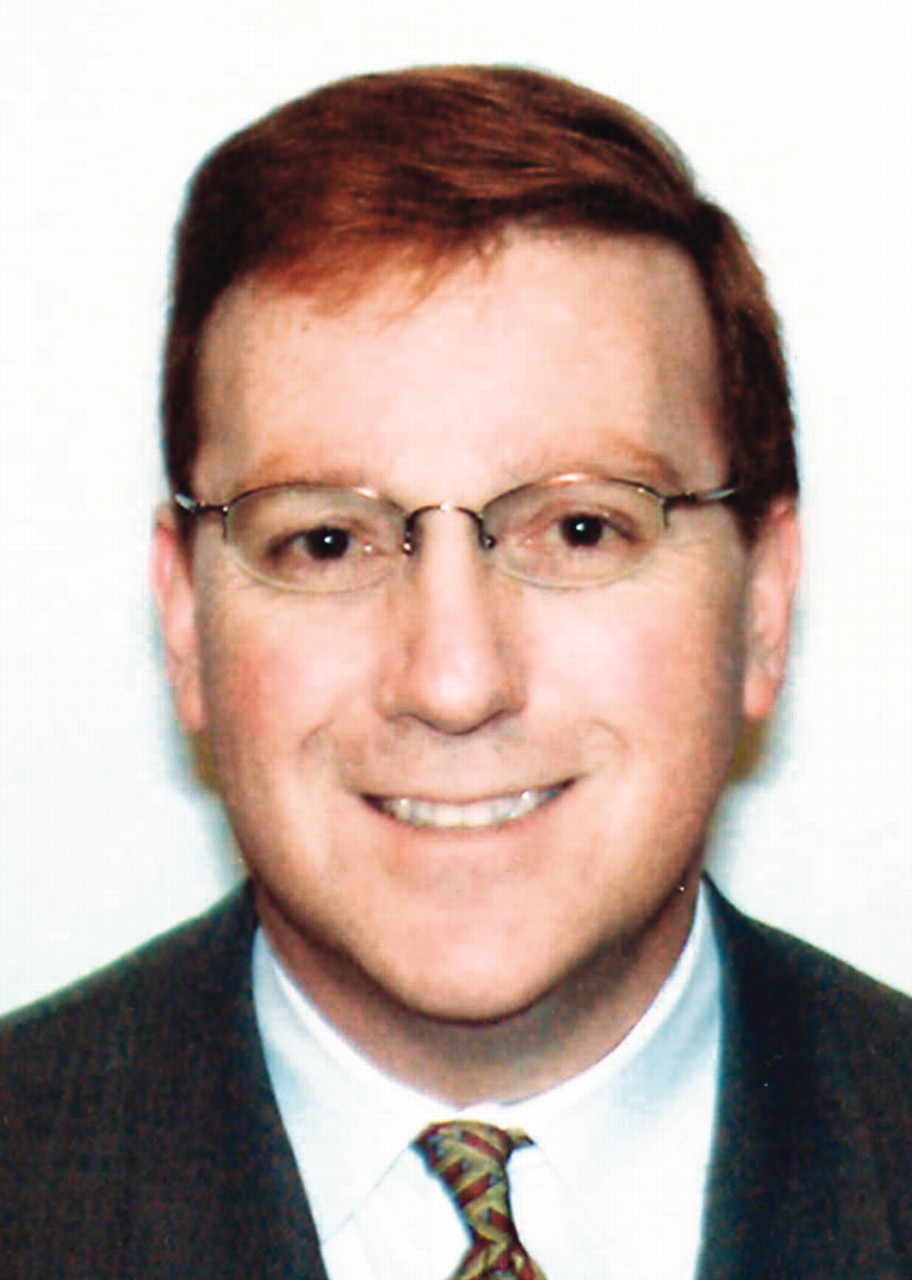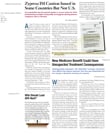Where Phumzile Hlongwa comes from in black, rural South Africa, becoming a professional of any kind—let alone a health professional with a specialized degree—is something of a small miracle.
But today she is Prof. Phumzile Hlongwa, B.D.S., M.Dent., chair of orthodontics at the Medical University of South Africa.
She is just one of thousands of miracles made possible in part by Medical Education for South African Blacks (MESAB), a nonprofit organization dedicated to providing financial aid, training, and education for the development of South African black health care professionals in their country.
“We have story after story like that,” said MESAB Chief Executive Officer Saul Levin, M.D., a South African–born psychiatrist and APA member. “Many of our scholars are becoming leaders in their professions.”
The organization is a collaborative partnership of South Africans and Americans, with offices in Washington, D.C., and Johannesburg. Levin reported that since the organization's inception in 1985, MESAB has sponsored 6,841 black students in the health sciences and 2,128 students in medicine. In 2004 MESAB sponsored 184 students in medicine.
“Today MESAB is the largest non-governmental source of funding for black students preparing for health care careers in South Africa,” Levin said.
Ten years after apartheid ended, the road to advancement is still paved with obstacles. In the words of Yusuf Dinath, executive director of MESAB's South African office, black South Africans like Hlongwa have “gone up against a flood in order to make the grade to get to the top.”
There is little in the American experience that mirrors the radical ground shift that confronts blacks leaving rural townships—many of whom lived much of their lives under apartheid rule—to go to universities and technical schools in South African cities.
“South African blacks have had to cope with decades of poor primary and secondary education, as well as social neglect,” Levin said.“ Students who come into universities from rural areas are shell shocked. I have had students who tell me they've never had a bank account or ridden in an elevator.”
To ease the transition, in 1998 MESAB began a mentoring program designed to match first- and second-year students with senior scholars. Initially offered on six campuses, the program is now available at all 22 of the universities and technikons (technical schools) attended by MESAB scholarship recipients.
Levin Gives Back to Native Country
Levin came to MESAB in October 2004, 20 years after leaving Johannesburg, where he graduated from Witwatersrand Medical School. He completed his psychiatry residency at the University of California, Davis.
Levin served as a special expert appointee under the Bush and Clinton administrations to what was then the Alcohol, Drug Abuse, and Mental Health Administration, where he worked on the reform of mental health and substance abuse services.
Later, he attended Harvard University, where he received a master's degree in public administration. Returning to Washington, D.C., Levin founded and served as sole owner and director of Access Consulting International, which provided technical assistance to the federal government for 10 years. He also provided conflict-resolution services to government agencies and nonprofit organizations.
Levin is an APA delegate to the AMA House of Delegates and serves on the AMA's Council on Long-Range Planning and Development.
As CEO, Levin hopes to expand the number of scholarships offered by maintaining and building upon MESAB's traditional donor base of American and transnational companies, while also beginning to build donations from South African companies.
“We are now really pushing the South African companies to contribute, because they are beginning to see the benefits,” Levin said.
Nonetheless, he pointed out, foreign contributions—from companies as well as individuals—remain vital especially because the exchange rate is so favorable: one dollar equals six South African rand.
“It costs 600 rand to send a midwife to receive perinatal and HIV/AIDS education, so when people give $100, it really goes a long way,” Levin said. “In our case, every dollar really does make a difference.”
He also hopes to involve MESAB in recruiting more black South Africans into the mental health professions, a health care area that was neglected under apartheid. Levin said there are not more than five psychiatrists to serve South Africa's 30 million blacks.
“I would love to see more funding from the psychiatric community for postgraduate residency training in psychiatry,” Levin said.
MESAB Is Educational Peace Corps
By far the largest health problem facing South Africa is HIV/AIDS, whose incidence has reached staggering proportions among the black population. Twenty percent of the black population, including 25 percent of pregnant black women, are infected with HIV. Some 85,000 babies are born each year with HIV.
Such a floodtide of misfortune must seem overwhelming, but Levin believes that increasing the number of black health professionals can help to make a dent in South Africa's problems.
“I look at MESAB as the educational Peace Corps in South Africa,” he told Psychiatric News. “Our students do not leave the country but stay here in South Africa. Many of them come from very rural areas, and they have a strong belief in going back to their areas of origin.”
Levin believes that the work of MESAB is not only helping to heal South Africa's medical and health inequities, but also serves as a long-term investment in the viability of South Africa as a democratic society.
“The new slogan of MESAB is ensuring democracy through education,” Levin said. “For years, there has been no black professional class. But as we begin to build a cadre of black professionals, they will send their kids to better schools, buy homes, and create the kind of stable, middle-professional class that can ensure democracy.”
Levin, who returns to the country at least twice a year, sees a happier South Africa in the decade after the fall of apartheid.
“It's a magnificent country, of course, in terms of nature and natural resources,” he said. “But today you see a lot more integration, so that when you go into a restaurant, the feeling is much better, as you see the people from different races eating side by side or at the same table. From a psychological perspective, it's a lot more pleasant to be there.”
He added, “South Africa clearly serves as a model for racial and ethnic integration, based on respect, understanding, and—through the help of an organization like MESAB—education and funding of scholarships and bursaries.”
Additional information about MESAB and how to donate is posted online at<www.mesab.org>.▪


